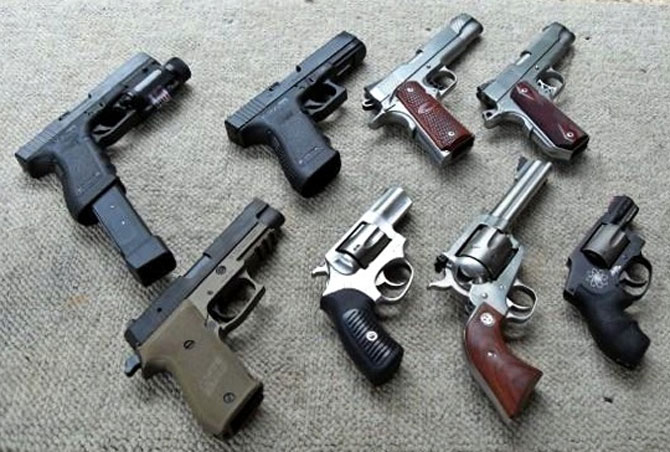Could Prescription Meds Result in Gun Confiscation?

An attorney for an upstate New York gun owner claims his client's permit to own firearms was suspended by state police because he received a prescription for anti-anxiety medication.
"It's disconcerting to know that if your doctor prescribes you a psychotropic medication … that results in the state police trolling to pick up this information, and if you do have a gun license, it will be revoked," Jim Tresmond, attorney and gun-rights advocate, told Buffalo news station WKBW.com.
Authorities have not confirmed that the man's prescription for anti-anxiety medication was the cause for the suspension of his gun permit, though Tresmond said it was. [Understanding the 10 Most Destructive Human Behaviors]
The action, Tresmond said, resulted from the New York SAFE (Secure Ammunition and Firearms Enforcement) Act of 2013, signed into law on Jan. 15 in the wake of the Newtown, Conn., shootings, in which gunman Adam Lanza killed 20 children and six adults.
How safe is the SAFE Act?
The NY SAFE Act requires "mental health professionals, in the exercise of reasonable professional judgment, to report if an individual they are treating is likely to engage in conduct that will cause serious harm to him- or herself or others."
If such a determination is made, "the Division of Criminal Justice Services will determine whether the person possesses a firearms license and, if so, will notify the appropriate local licensing official, who must suspend the license. The person's firearms will then be removed."
Get the world’s most fascinating discoveries delivered straight to your inbox.
The law has come under fire from gun-rights advocates as well as mental health professionals, who fear the new law discourages people from seeking professional help for mental health issues.
"If people with suicidal or homicidal impulses avoid treatment for fear of being reported in this way, they may be more likely to act on those impulses," Dr. Paul Appelbaum, director of the Division of Law, Ethics and Psychiatry at Columbia University, told the Huffington Post.
"It undercuts the clinical approach to treating these impulses, and instead turns it into a public-safety issue," Appelbaum said.
A 'helpful step'
The NY SAFE Act may, however, help to address what some believe is already a public-safety issue.
"If the law is implemented in a clinically well-informed manner, it holds the promise of helping to protect patients and the general public," Dr. Mark Olfson, a professor of psychiatry at Columbia, told the Post.
It's "a helpful step," Eric Neblung, president of the New York State Psychological Association, told the Post. However, Neblung said, the NY SAFE Act fails to resolve a more fundamental problem — limited access to mental-health care.
Tresmond, who has filed suit against the state for passing the NY SAFE Act, accompanied his unnamed client to turn in the man's seven handguns to the police in Amherst, N.Y.
"A law-abiding, honest, hard-working professional, who never had one [whit] of scandal associated with him, criminal or otherwise. And they took his guns away," Tresmond told Buffalo news station WIVB.com.
Follow Marc Lallanilla on Twitter and Google+. Follow us @livescience, Facebook & Google+. Original article on Live Science.



